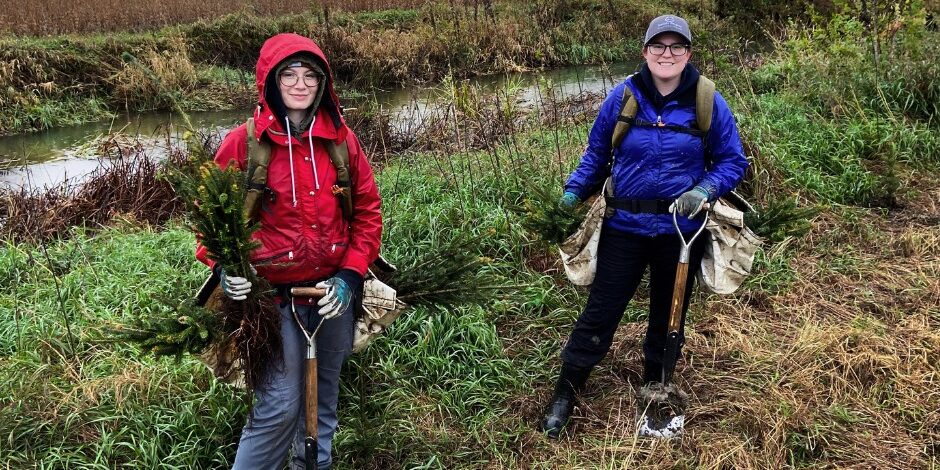In fall 2015, heads of state adopted a UN document, “Transforming our world: the 2030 Agenda for Sustainable Development.” It contains 17 “transformative” Sustainable Development Goals (SDGs) to “guide decisions we take over the next fifteen years.”
World leaders resolved, by 2030, to “end poverty and hunger everywhere; to combat inequalities within and among countries; to build peaceful, just and inclusive societies; to protect human rights and promote gender equality and the empowerment of women and girls; and to ensure the lasting protection of the planet and its natural resources.”
They also resolved to create conditions for “sustained economic growth.”
But sustained economic growth is destroying the planet. World leaders will not deliver on their resolutions. The SDGs will not be met.
The world is being transformed, but not in a good way. For positive transformation we need fresh thinking.
The IPBES Transformative Change Assessment, released on December 18, 2024, attracted no media attention (bad timing, just before Christmas). In the “Summary for Policymakers”, 100 of the world’s top scientists identify four key principles to address nature’s decline: “equity and justice; pluralism and inclusion; respectful and reciprocal human-nature relationships; and adaptive learning and action.”
You’ve probably never heard of IPBES (the Intergovernmental Science-Policy Platform on Biodiversity and Ecosystem Services). It is the biodiversity equivalent of the IPCC (the Intergovernmental Panel on Climate Change). Here is a video introduction.
The IPBES scientists warn that “a societal emphasis on economic growth underpins modern-day consumerism, as do strategies to maximize profits, such as planned obsolescence and premature aging of technologies.” They say “resources devoted to blocking transformative change, for example through lobbying by vested interest groups or corruption,” are delaying needed action, with negative economic and environmental consequences.
They cite a previous study suggesting that “acting immediately could generate $10 trillion in business opportunity value and support 395 million jobs by 2030.”
The media release for the IPBES report highlights this claim, likely because money and jobs resonate with policymakers. The claim was taken from a World Economic Forum (WEF) report, The Future of Nature and Business. It says “nature-positive models” could create “USD 10 trillions of global GDP growth and 395 million jobs by 2030.”
To a degree, the SDGs, IPBES, and WEF all link transformative change to economic growth. IPBES says efforts for conserving nature “are significantly under-resourced in relation to the global economic value generated by activities dependent on nature.” This suggests that additional conservation funding would yield a positive economic return. The WEF says “human societies should rapidly transform their primary sectors to achieve ecosystem restoration and avoided land and ocean use expansion.”
The WEF cites an article, Adopt a carbon tax to protect tropical forests. It says Costa Rica’s 3.5 per cent tax on fossil fuels “generates $26.5 million per year for the country’s National Forest Fund,” helping Costa Rica double its forest cover “and become a leading example of moving from a deforestation-driven economy to a restoration one.”
In reality, Costa Rica has no carbon tax. Like most Canadian jurisdictions, it has an excise tax on transportation fuels. Of the tax revenues, 29 per cent go to the National Road Council, and 3.5 per cent for forest conservation. Could such a small change be “transformative” in Canada? Maybe.
The WEF and IPBES diverge on key elements of transformative change. The WEF appears to want to absorb Indigenous communities into the global economy – so much for pluralism. In contrast, IPBES emphasizes “community rights and empowerment,” and “spiritual reconnection between humans and nature.” It says Indigenous peoples have “long-standing, powerful and holistic visions for living in harmony with nature,” a world “where all life can thrive.”
Regarding spiritual reconnection with nature, I recommend Zoë Schlanger’s The Light Eaters: How the Unseen World of Plant Intelligence Offers a New Understanding of Life on Earth. Plant intelligence has become a topic of intensive (and controversial) scientific research. Plants have powers of vision that go well beyond their ability to track sunlight. Plants can hear. They have a sense of touch (e.g., the well-known Venus Flytrap). Some can track visits from pollinators and adjust nectar rewards accordingly.
Plants are highly social, communicating with each other. They emit airborne chemical signals when under insect attack so that their neighbors can make their own defensive compounds. They recognize close relatives, orienting their leaves to share sunlight, and limiting their root growth to share water and nutrients.
Schlanger demolishes the myth that plants are unconscious, genetically pre-programmed objects. She reminds us that our lives are wholly dependent on plants. Along with bacteria, fungi, and other animals, we are “folded into layers of interrelationship” with plants.
Schlanger says “Seeing plants as beings worthy of rights would open up a different realm of being with plants. It would revolutionize our moral system, our legal system, and the way we live on this earth.”
The IPBES report has a similar suggestion: “new legal protections for peoples and places through rights-based approaches, respecting the rights of nature and rights of Mother Earth.” It calls for “transformative learning,” to be “facilitated by integrating nature-connectedness into education, health, spatial planning, communication and art, and by fostering the understanding that human well-being and quality of life are dependent on nature.”
Nature-connectedness works even in an urban setting in winter. In a recent interview on CBC’s The Current, Dr. Holli-Anne Passmore, Associate Professor of Psychology at Concordia University of Edmonton, says to notice nature around you — berries on the trees, birds, bird sounds, rabbit tracks in the snow. She describes how this can provide a sense of awe, a sense of wonder, of deep appreciation, of spiritual uplift.
Of nature, Passmore says “Notice how it makes you feel. You will be surprised at the difference it makes.”
Notice nature. Check out The Light Eaters. If you’re a policy maker, check out the IPBES Transformative Change Assessment.
Transformative change begins with us.



